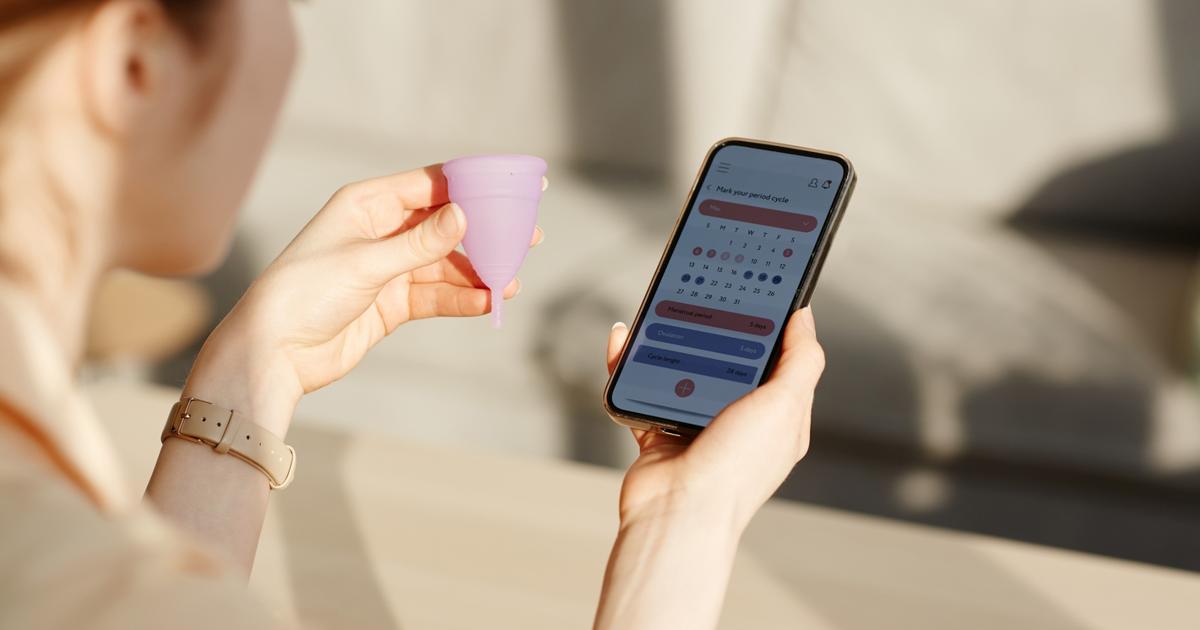It is a passionate 88-year-old woman, still a teenager with grace, ultrachic under a square of white hair, who occupies the somewhat outdated stage of the Institute of Paleontology, in Paris, on this May day.
In an amused voice, Marie-Antoinette de Lumley, prehistorian and paleoanthropologist of international renown, tells how she discovered that the famous "man of Menton", this Homo sapiens of the Upper Palaeolithic, who died 24,000 years ago and discovered in 1872 in the Alpes-Maritimes, was actually… A woman!
“The skeleton was in the Musée de l'Homme where I worked in the early 1980s, I passed by it every day, until one morning my eye was intrigued by the shape of the pelvis.
The bones suddenly seemed too large for a man.
Marie-Antoinette de Lumley convinced a fellow scientist to sift through these bones and their thickness using MRI (magnetic resonance imaging).
And while for decades prehistoric experts, mostly male, ruled that human remains found in a burial with hunting tools were necessarily those of a man, the verdict falls: Menton is a woman, that the Lady of Cavillon is renamed after the name of the cave where her skeleton rested.
The 3D images confirm this, the impressive shell headdress, the ornaments in the tomb honor a warrior (or a shaman), in an unprecedented reversal of genre and perspective.
The most innovative technology, to which Marie-Antoinette de Lumley had the intuition to call, worked in the service of women,
Read alsoA revolutionary test soon available to detect endometriosis in a few days
The field of possibilities
A few decades later, this is exactly the ambition displayed by FemTech: to rely on the digital revolution to improve and amplify the lives of women.
This word, condensed from
female technology
, was imagined in 2016 by Danish entrepreneur Ida Tin, founder of the Clue period tracking application, an international success with more than 10 million users and some $30 million in funds raised.
In the wake of Clue, FemTech therefore brings together technologies, diagnostic tools and digital solutions likely to help women in their health, well-being and sexuality.
The field is vast!
First dedicated to the female genitalia, from menstrual cycles to vulvar pain, from infertility to menopause, it has extended to other spheres: eating disorders, anxiety, depression, heart disease... In short , each time the problem was judged to be little (or badly) explored in the feminine.
To this must be added sexuality,
its pains as well as its pleasures – this “SexTech” having become a sub-part of FemTech.
In the era of the start-up, the figures follow: in 2022, the FemTech market represents 40 to 70 billion dollars worldwide depending on the studies – and depending on whether or not we combine Fem and SexTech.
It is estimated at between 70 and 100 billion dollars by 2027.
Read alsoThe boom in female sexual well-being, between revolution and injunctions
Specific needs or a more universal question, inventions have followed one another for ten years in various fields: Fizimed offers a connected probe for the rehabilitation of the perineum;
Omena, a site-guide-podcast on menopause;
Vulvae, an app for vulvar pain;
Elvie, a “smart” breast pump and an innovative rehabilitator to prevent organ descent – or prolapse –;
Lucine, a digital device to treat chronic pain and endometriosis… All this galaxy of start-ups that make up (from Europe to the United States via Israel) the FemTech has given a gigantic kick in the anthill , destabilizing many people, and in several ways.
Eliminate preconceived ideas and obstacles
First, the very expression of
female technology
has shattered a kind of ancestral kindness attached to the spirit of
care
: an image from Épinal of women working voluntarily for the health of others, including men.
Because yes, say these 3.0 entrepreneurs, we can think of solidarity, health, support for women AND entrepreneurial success, money, fame... FemTech, then, tangles generations: the founders of the app on menopause Omena, for example, are not in their thirties but have mastered the issue at their fingertips.
These entrepreneurs chase away preconceived ideas, such as obstacles: do women in disadvantaged neighborhoods consult insufficiently, if at all, gynecologists?
eGyn decides to bring information to them at home via their computer screen, to facilitate access to smear samples.
FemTech, nourished by a militant fiber, intends to get out of the
On video, miscarriage: stars break the taboo
These new approaches are not without debate, even opposition.
The neurobiologist Catherine Vidal, although known for her feminist commitment, nevertheless calls for vigilance (on the site
The Conversation
, she mentions "a step back") when a suite of algorithms claims to tell you if you can make love on such a day without contraception and without the risk of getting pregnant.
The same skepticism of gynecologists in the face of tests which ensure, with supporting temperature sensors, to determine your best day of fertility.
Another obstacle – and a major one – is that of the Gafa.
When, on social networks, images (breast, vulva) and words (libido) are censored, it is not easy to disseminate information on vaginal dryness.
Finally, if fundraising remains an obstacle course for any entrepreneur, it is even more complicated in the case of FemTech: the majority among investors, "50-year-old men don't understand us and don't always dare defend ourselves”, explains Christel Bony during a round table organized by her collective SexTech for Good.
Another speaker, investment director at Newfund Capital, a Franco-American fund, Zoé Mohl judges the problem “very generational”.
“Me, SexTech, it does not make me blush, she insists.
These are innovations as important as
time to market
, the best time to get started.
There will be a winner in the fight against endometriosis, she has not yet emerged,” continues Zoé Mohl.
Sometimes just opening a bank account is complicated when you start a SexTech...
There will be a winner in the fight against endometriosis, she has not yet emerged
Zoé Mohl, Investment Director at Newfund Capital
Convince consumers of the potential
The boiling around Fem and SexTech also sheds light on the fact that whole sections of medicine undervalue the female body.
Cardiovascular research is a striking example.
While hospitalizations for myocardial infarction in young women are increasing, their management is later than for men.
“After the infarction, only one in four women is referred to rehabilitation, which leads to a loss of chances”, estimates Dr Catherine Monpère, at the French Federation of Cardiology.
At Dassault Systèmes, we are working, within the framework of so-called “digital twins” projects, on a woman's heart likely to advance research and treatments.
The FemTech market, inventive, promising, finally comes up against another risk: the protection of individual health data.
Work on their anonymization must continue.
Without counting that it is still necessary to convince in France of the consumers accustomed to the reimbursement of their care (which these apps of the FemTech rarely offer).
Consumers, often young and committed to these new digital tools, have a decisive role to play in ensuring their notoriety.


/cloudfront-eu-central-1.images.arcpublishing.com/prisa/FPECVW63TVFWNJJWMZCKKQSIOA.jpg)



